EU-MIDIS: European Union Minorities and Discrimination Survey
1.The Roma | 2.Muslims | 3.Rights awareness | 4.Police Stops and Minorities | 5.Multiple discriminationApril 22, 2009 - European Union Agency for Fundamental Rights
Related links (external):
- EU-MIDIS Main Results Report Conference Edition (09/12/2009)
- EU-MIDIS at a glance
- Η EU-MIDIS με μια ματιά Παρουσίαση της έρευνας του FRA σχετικά με τις διακρίσεις σε όλη την ΕΕ
- EU-MIDIS mini-site at FRA
Tags
Minorities and study groups, Ethnic minorities, Religious minorities, Migrants, Racism & xenophobia, Racist violence & crime, Roma, Muslims, Xenophobia & intolerance, Islamophobia, Zinganophobia, Discrimination, Ethnic and racial origin, Multiple discrimination, Equal treatment and legislationEU-MIDIS is the first ever EU-wide survey of immigrant and ethnic minority groups' experiences of discrimination and victimisation in everyday life. Addressing the lack of reliable and comparable data on minorities in many EU countries, the survey examines experiences of discriminatory treatment, racist crime victimisation, awareness of rights, and reporting of complaints. EU-MIDIS involved face-to-face interviews with 23,500 persons from selected immigrant and ethnic minority groups in all 27 Member States of the European Union. 5,000 persons from the majority population were also interviewed to compare the results.
► Experiences of discrimination, criminal victimisation and policing grossly under-reported
High levels of discrimination, racist crime and victimisation
The ethnic minority and immigrant groups interviewed described high levels of discriminatory treatment and criminal victimisation, including racially motivated crime. Of the nine areas of discrimination in everyday life looked at in the survey, discrimination in employment emerged as the most significant area for discriminatory treatment. The results show that discrimination in two main areas of life, namely education and employment, is particularly problematic for some groups. This result is alarming as education and paid employment hold the key to integration and social inclusion, representing the ‘prerequisite’ for leading a dignified, free and confident life.
Overwhelming majority do not report their experiences
The survey showed that the overwhelming majority of respondents did not report their experiences of discrimination to an organisation or at the place where it occurred. The same is true for assaults, threats and serious harassment: the majority of respondents did not report their experience of victimisation to the police. This means that thousands of cases of discrimination and racist crime remain invisible, and are therefore not recorded by official complaints and criminal justice data collection mechanisms.
What can policy-makers do about this?
- The data from this survey offers the possibility to develop targeted and evidence-based policy responses.
- Looking at specific areas of discrimination, such as education, the results call for the establishment of independent mechanisms for all schools and other educational institutions for recording complaints in relation to discrimination on the basis of ethnicity/immigrant background.
► Poor rights awareness
Vulnerable groups not informed about anti-discrimination legislation
This survey provides evidence that the groups most vulnerable to discrimination in the EU remain uninformed about legislation forbidding discrimination against people on the basis of their ethnicity. On average, 43% of respondents (depending on the group and the area of discrimination) thought that no anti-discrimination legislation existed, and a further 20% were unsure. This demonstrates an urgent need to increase rights awareness amongst vulnerable minorities.
Reasons for non-reporting

The main reason given by all respondents for not reporting discrimination incidents was the belief that 'nothing would happen' as a result of reporting. Another common reason for not reporting was lack of knowledge about how to go about reporting. On average, 82% of those who were discriminated against in the past 12 months did not report their most recent experience of discrimination either at the place where it occurred or to a competent authority.
What can policy-makers do about this?
- Push for a critical assessment of implementation of the Racial Equality Directive (2000/43/EC) ‘on the ground’.
- Invest resources to make those who are vulnerable to discrimination aware of where they can turn to for support and advice.
- Allocate resources to organisations that offer assistance to people who have been discriminated against.
- Encourage those who have been discriminated against or harassed to report their experiences to a competent authority in the knowledge that their complaints will be taken seriously.
"Data in Focus Report 4: Police Stops and Minorities " (11/10/2010) EN - DE - FR
• EU-MIDIS data (31/08/2010):
Victims of discrimination
Ethnic minorities as victims of crime
• "Data in Focus 3: Rights awareness" (07/05/2010) EN - DE - FR versions now available
• "Data in Focus 1: The Roma" (22/04/2009) - BG - CS - DE - EL - FR - HU - PL - RO - SK and ES versions now available
• "Data in Focus 2: Muslims" (28/05/2009) - EN - DE - FR - BG - DA - ES - FI - IT - NL - SL - SV versions available
• "Main Results Report" (09/12/2009)
• "EU-MIDIS at a glance" (22/04/2009) BG - CS - DA - EL - ES - ET - FI - HU - IT - LT - LV - MT - NL - PT - RO - SK - SV versions now available
PUBLICATIONS
-
 PRESS RELEASE: EU's external migration policy: a bolder approach
PRESS RELEASE: EU's external migration policy: a bolder approach
February 21, 2014 -
 Abused and Expelled: Ill-Treatment of Sub-Saharan African Migrants in Morocco
Abused and Expelled: Ill-Treatment of Sub-Saharan African Migrants in Morocco
February 10, 2014 -
 Racism, discrimination, intolerance and extremism: learning from experiences in Greece and Hungary
Racism, discrimination, intolerance and extremism: learning from experiences in Greece and Hungary
December 31, 2013 -
 RED Annual Report 2011 - The rise of far-right extremism, hate crime and xenophobia in Europe
RED Annual Report 2011 - The rise of far-right extremism, hate crime and xenophobia in Europe
March 19, 2012 -
 i-RED Annual Activity Report 2011
i-RED Annual Activity Report 2011
March 25, 2012 -
 Human rights of Roma and Travellers in Europe
Human rights of Roma and Travellers in Europe
February 27, 2012 -
 RAXEN reports 2006-2010
RAXEN reports 2006-2010
FEATURED CAMPAIGNS
February 18, 2014
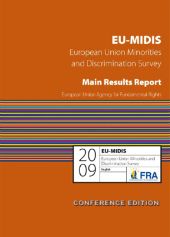
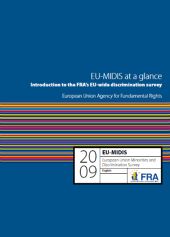
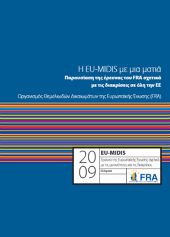
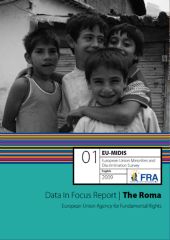
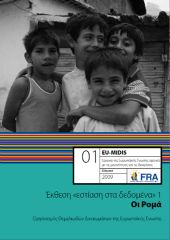

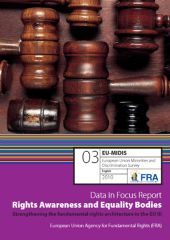
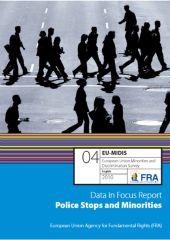
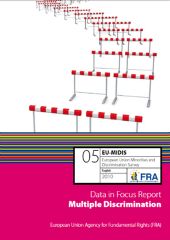
 ΔΕΛΤΙΟ ΤΥΠΟΥ: Σχετικά με τον Κώδικα Μετανάστευσης και Κοινωνικής Ένταξης
ΔΕΛΤΙΟ ΤΥΠΟΥ: Σχετικά με τον Κώδικα Μετανάστευσης και Κοινωνικής Ένταξης